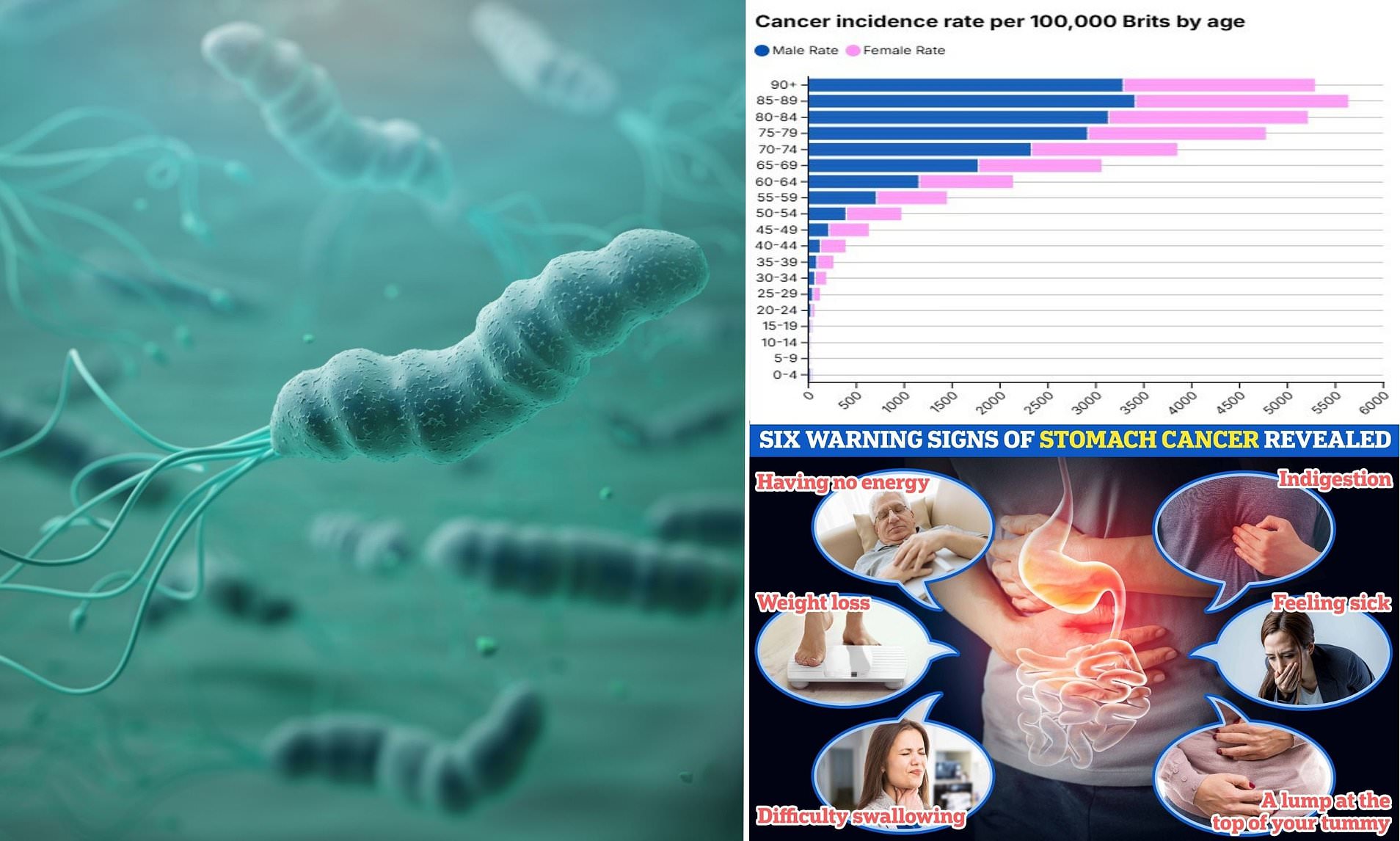The Global Threat of Helicobacter pylori and Its Link to Stomach Cancer
Helicobacter pylori, a common bacteria responsible for nearly half of all stomach cancer cases in the UK, is raising concerns among scientists worldwide. This bacterium is now estimated to cause 76% of stomach cancers globally, according to recent research. Experts warn that without intervention, this could lead to millions of deaths in the coming years.
H. pylori infects the lining of the stomach and can cause long-term damage that may lead to cancer. However, many people infected with the bacteria show no obvious symptoms beyond common issues like indigestion, bloating, or nausea. This lack of visible signs makes it difficult to detect, leading to many undiagnosed cases.
The International Agency for Research on Cancer (IARC), part of the World Health Organisation, has highlighted the urgent need for increased screening for H. pylori. The infection can be detected through blood tests, breath tests, or stool samples. Scientists emphasize that early detection and treatment could save countless lives.
According to IARC researchers, if no action is taken, approximately 12 million people born between 2008 and 2017 will develop stomach cancer due to H. pylori. This accounts for over three-quarters of all cases. The bacteria is primarily spread through contaminated food and water, as well as close contact with infected individuals.
In the UK, studies have found that around 40% of the population is infected with H. pylori, although this rate is decreasing. Most of these individuals—between eight and nine out of ten—will not experience any symptoms, meaning they are unaware they are infected. The condition is often only discovered when it leads to painful stomach ulcers.
While the majority of cases linked to H. pylori are expected to occur in Asia, significant numbers will also be seen in the Americas and Europe. In the UK alone, 41% of the 6,500 annual stomach cancer cases are attributed to H. pylori, equating to about 2,700 cases each year.
Research suggests that being infected with H. pylori increases the risk of developing stomach cancer by six times. However, appropriate treatment, such as antibiotics, can significantly reduce this risk. In a study published in Nature Medicine, IARC scientists called for greater investment in population testing to identify those silently infected and offer them treatment.
The study analyzed current rates of stomach cancer in 185 countries in 2022 and projected future cases. It also found that 75% of global stomach cancer cases could be prevented through the introduction of screening programs. Dr. Jin Young Park, an author of the study and leader of the gastric cancer prevention team at IARC, emphasized the importance of prioritizing gastric cancer prevention and accelerating efforts to control it.
Despite the global concern, Cancer Research UK (CRUK) noted that Britons should not be overly worried about H. pylori infections, as it is not particularly common in the UK. Instead, the charity highlights other preventable lifestyle factors that contribute more significantly to stomach cancer risk.
Dr. Rachel Orritt, health information manager at CRUK, said: “Although this is an important issue worldwide, in the UK other preventable factors cause more cancer cases.” She urged the public to focus on reducing risks through actions such as quitting smoking, maintaining a healthy weight, limiting alcohol consumption, and eating a balanced diet.
CRUK estimates that just over half (54%) of all stomach cancers are preventable. The organization also reported that stomach cancer cases have decreased by more than a quarter over the last decade and are expected to continue declining.
Common symptoms of stomach cancer include heartburn, difficulty swallowing, feeling or being sick, indigestion, and burping. These symptoms are often caused by other conditions, but patients experiencing them for more than three weeks should consult their GP. Additional symptoms may include loss of appetite, unintended weight loss, stomach pain, a lump feeling in the upper abdomen, and extreme fatigue.
Approximately 18 Britons and 83 Americans are diagnosed with stomach cancer daily. In the UK, the disease claims the lives of over 4,200 patients annually, with the death toll reaching nearly 11,000 in the US. Only about one in six patients (17%) survive for 10 years after diagnosis.
In the UK, the lifetime risk of developing stomach cancer is about one in 92 men and one in 170 women. As awareness grows, so does the importance of early detection and prevention strategies to combat this serious disease.







